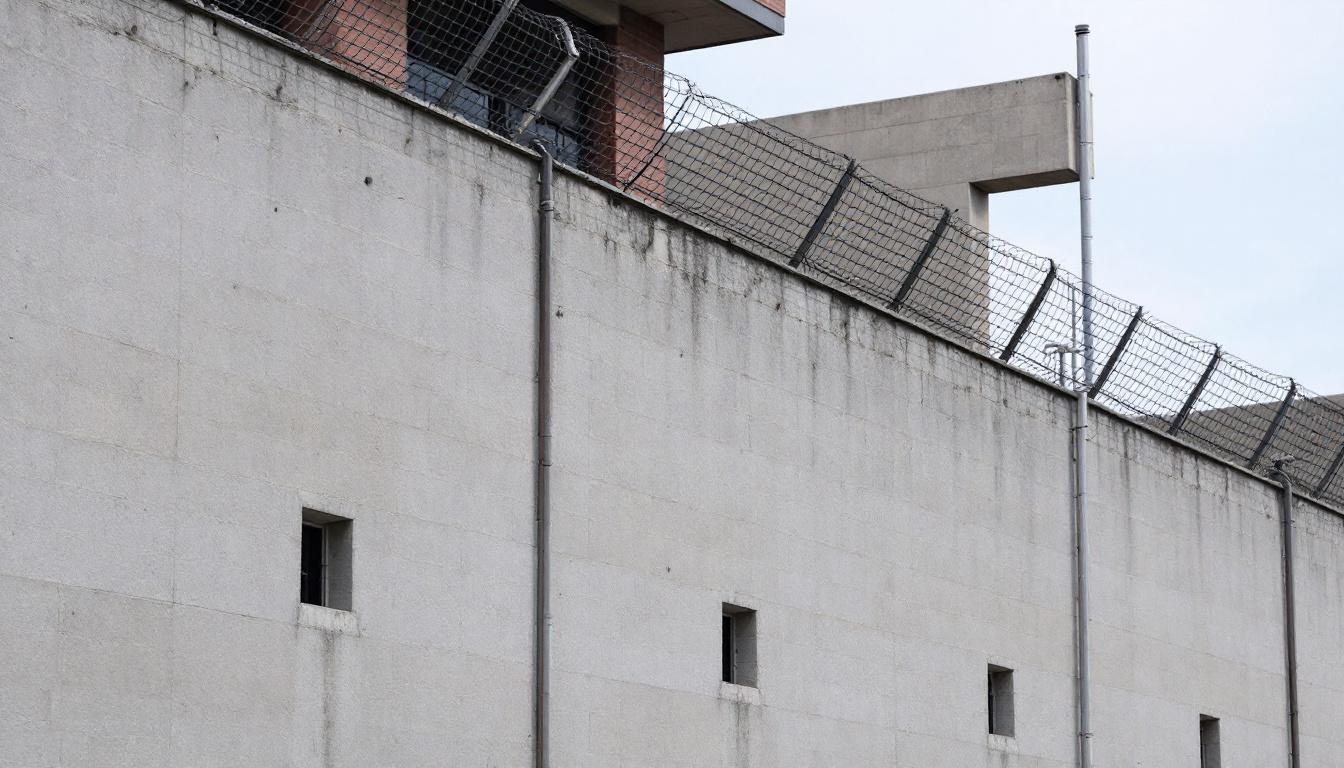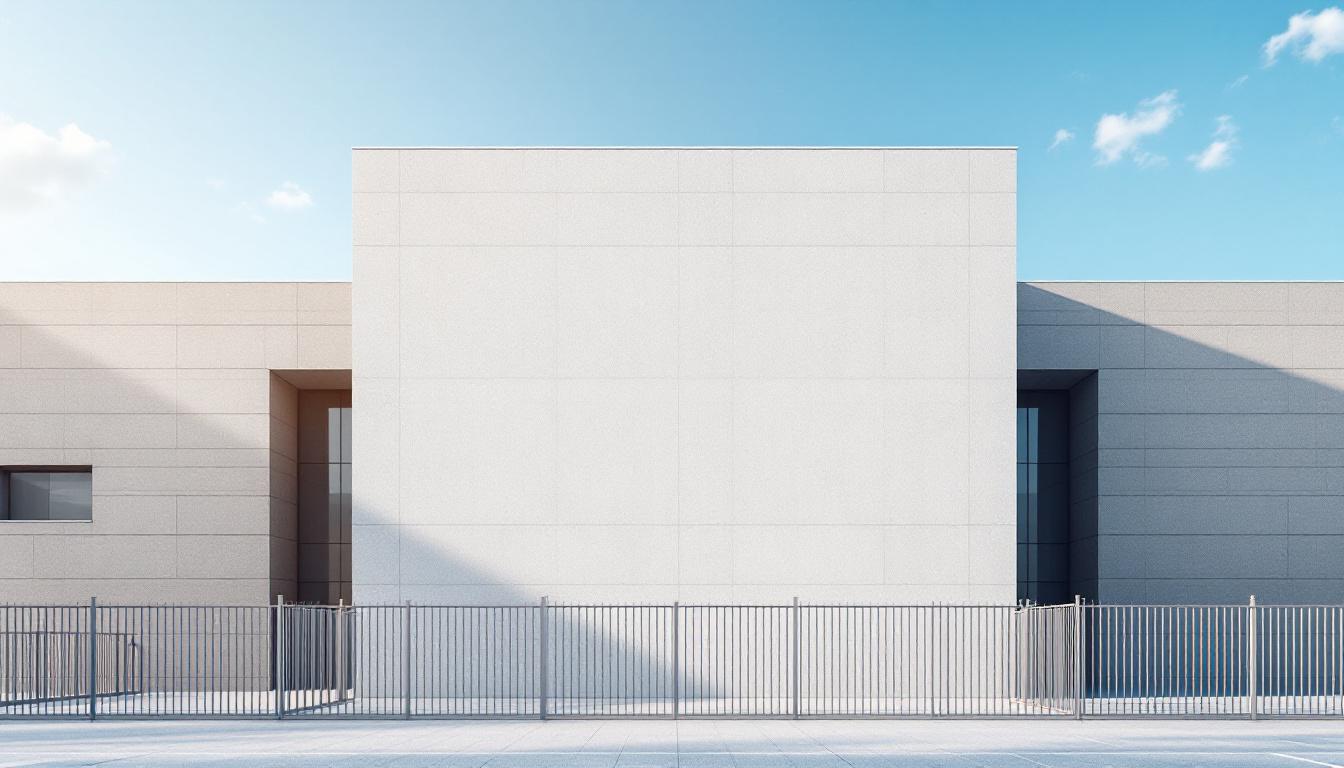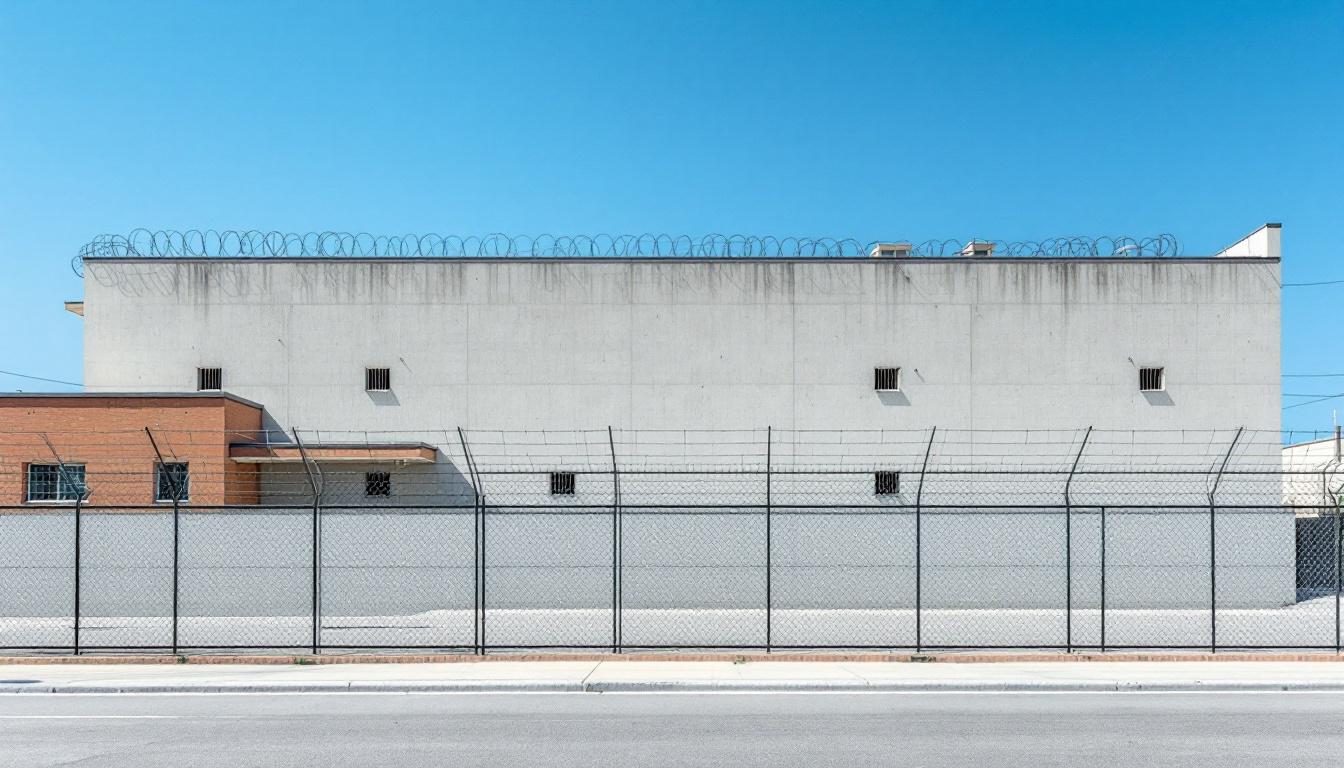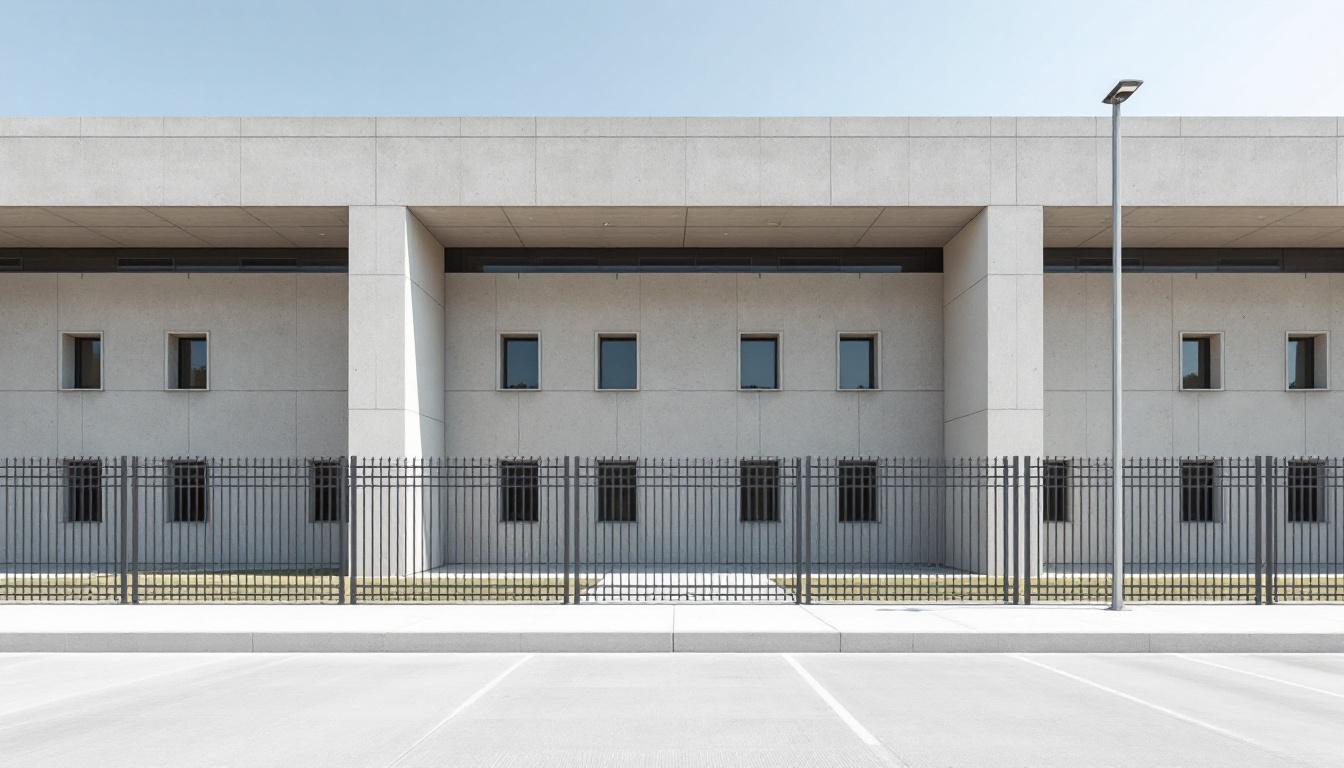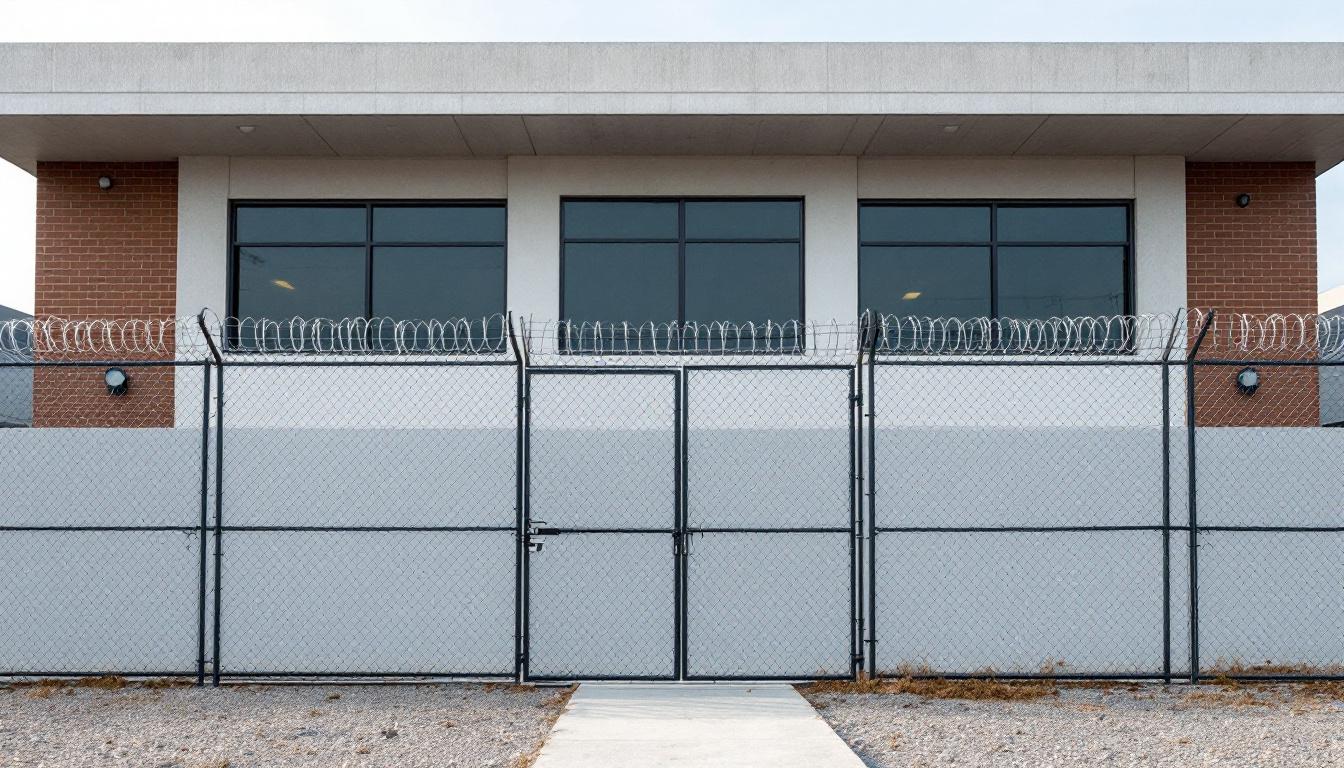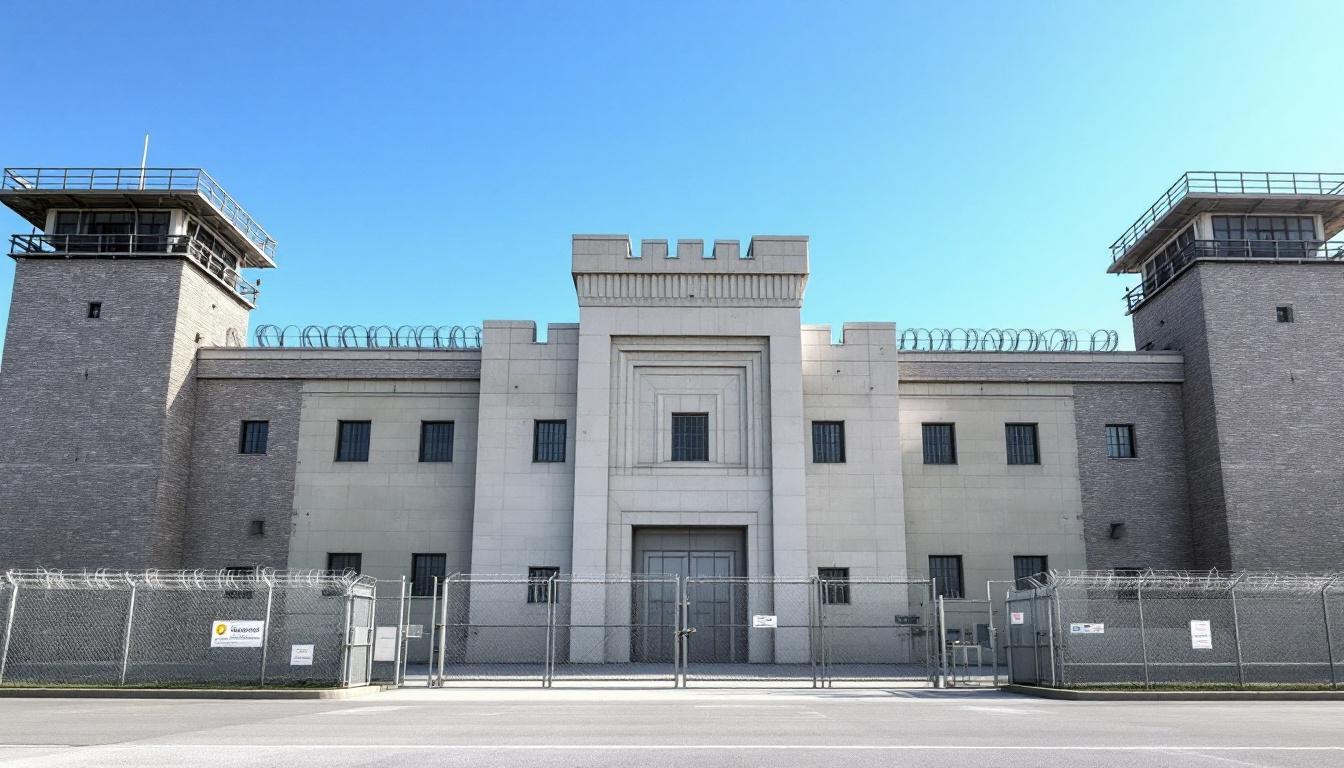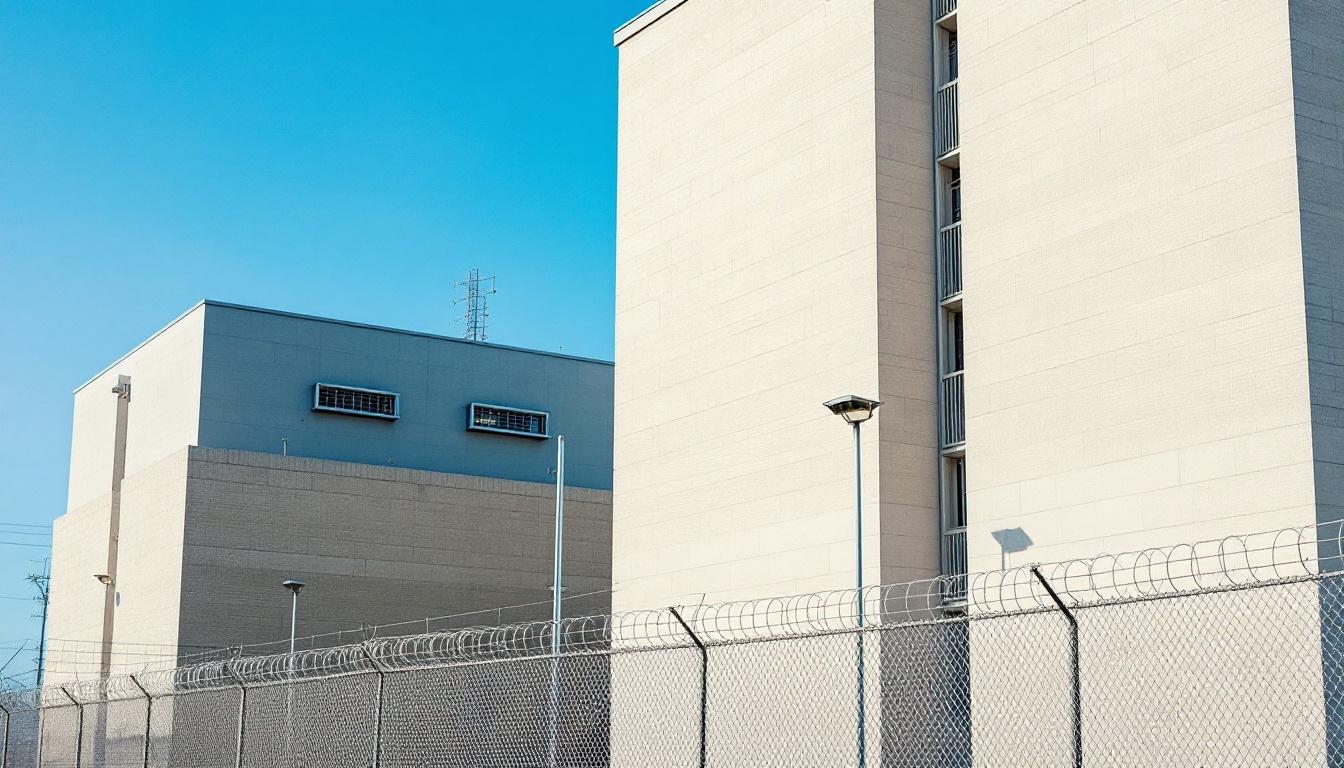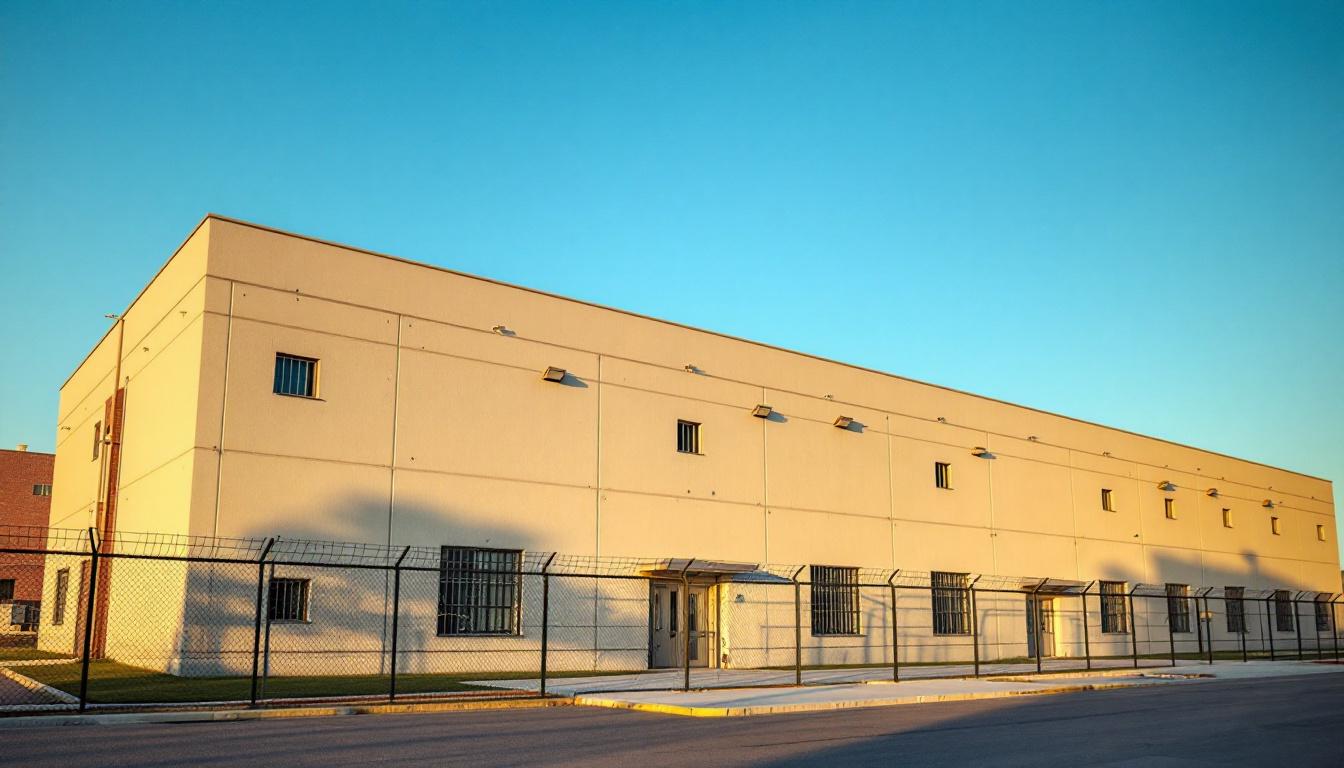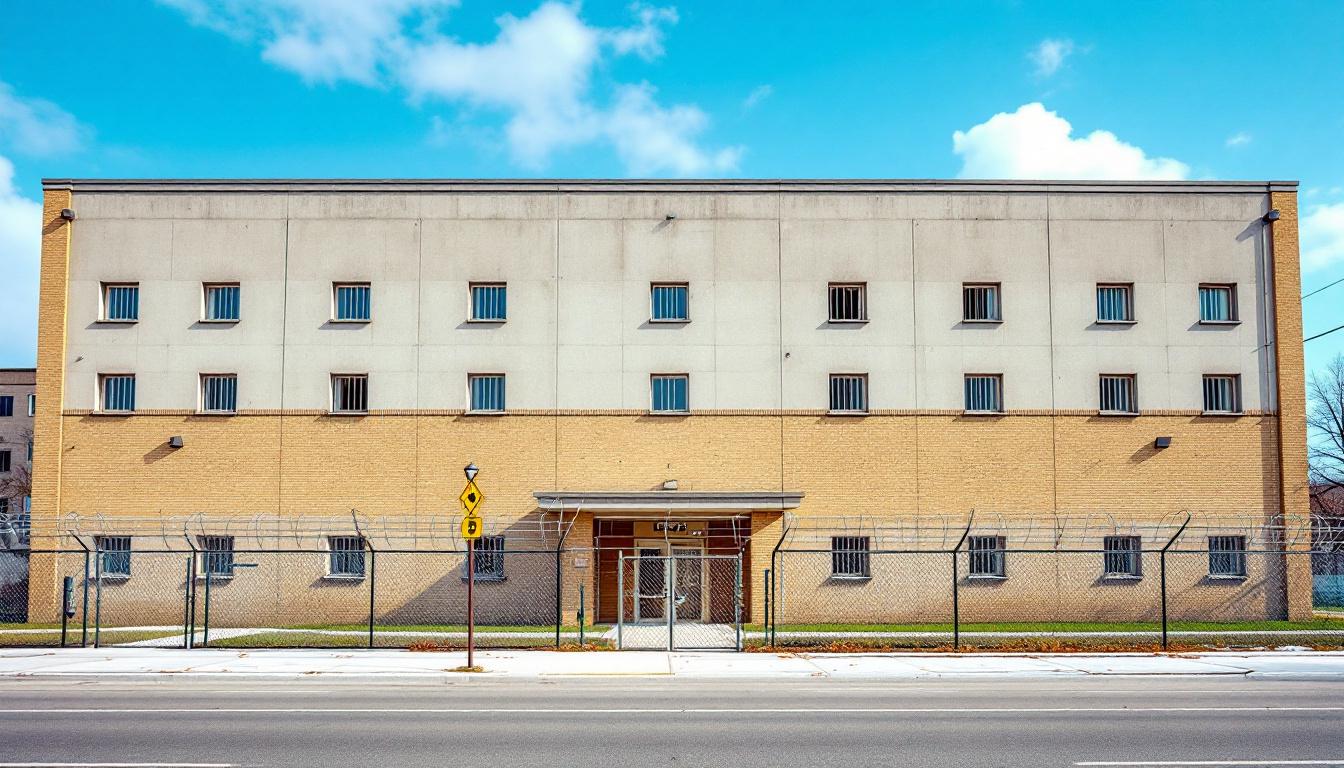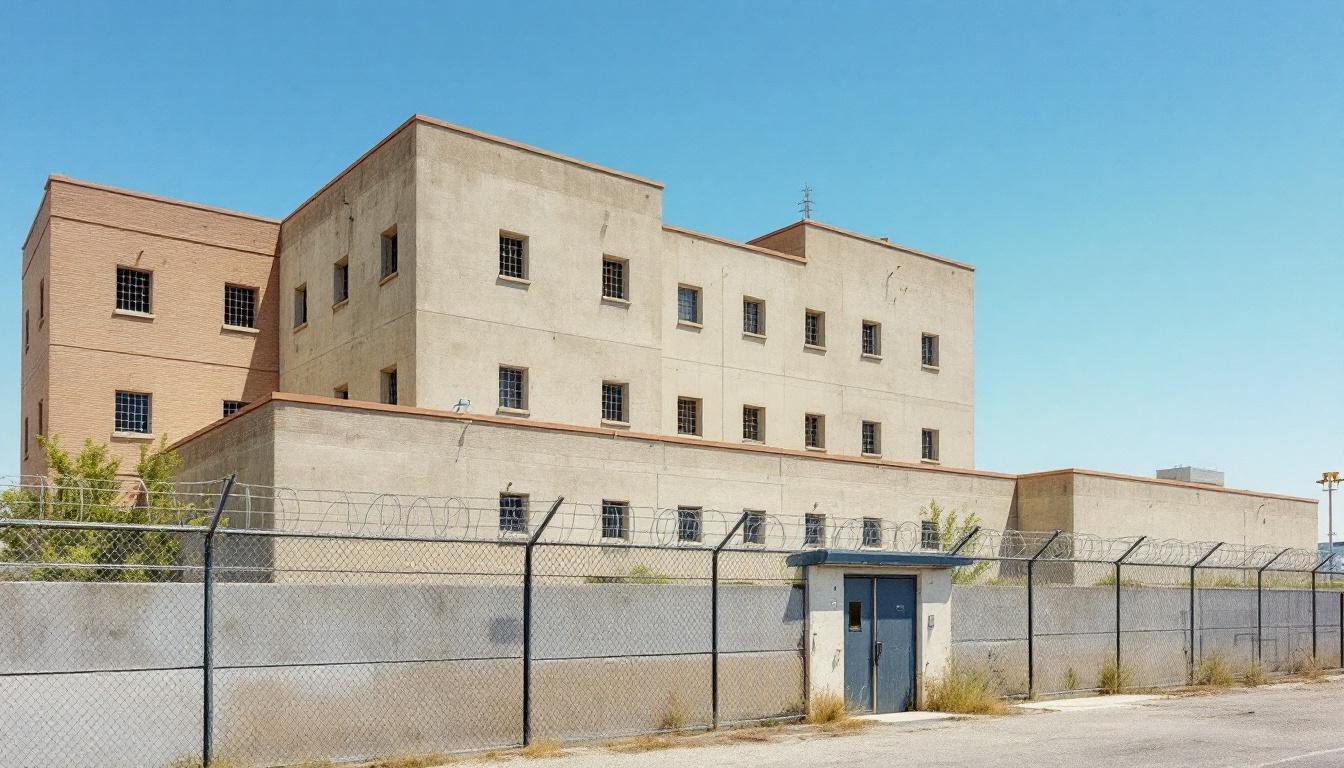
Quick Navigation
How to contact an inmate at Atlantic County Jail
This comprehensive guide will walk you through how to connect with an inmate at Atlantic County Jail. Follow the steps below to find an inmate and send letters and photos:
- Search for the inmate using our search tool below
- Create your account or log in to Penmate
- Write your message (up to 6,000 characters)
- Send instantly - inmates receive printed copies daily
Find an Inmate
Search for an inmate to start communicating today
Tip: You can search by first name, last name, or inmate ID number
To contact a person at Atlantic County Jail start by searching for the person on the official facility website. Perform a search by following these steps:
- Step 1: Enter their first name and last name into the search form and click "Search"
- Step 2: Locate their inmate record
- Step 3: Write down their Inmate ID and any housing information provided
Important! Be sure to enter the person's full name. Nicknames should not be used.
How to Send Messages to Inmates

You can use your phone or computer to send emails, letters, and photos to an inmate. Messages are sent electronically to inmate tablets or kiosks at the facility. If you would like to send a message, start by searching for an inmate at Atlantic County Jail.
Sending Photos and Postcards

A great way to send love and support to a loved one at Atlantic County Jail is to send photos and postcards. It only takes a few minutes to send photos from your phone and it makes a huge difference. You can also mail postcards with words of support and inspiration, or design your own postcard for special moments like birthdays and holidays.
Important! Be sure not to send any explicit photos or they may not be approved by the facility. You can also use a photo printing app like Penmate to make sure your photos are printed at the correct size (4x6 or 3x5) and are mailed according to the rules and regulations of Atlantic County Jail.
Frequently asked questions about Atlantic County Jail
-
How long does it take to deliver a message?
If you're sending an email message your letter is usually delivered within 24-48 hours. For messages sent via mail you should expect delivery within 3-7 days. All messages will need be approved by Atlantic County Jail.
-
How much does it cost to send a message to Atlantic County Jail?
You can send a message free using your phone or mail a message via USPS for the price of a $0.60 stamp and envelope. You can also purchase credits or e-stamps from services starting at $1.99.
-
What services can I use to contact an inmate at Atlantic County Jail?
Penmate
You can use Penmate to send letters and photos to an inmate from your phone. It's an easy way to stay in touch during your loved one's incarceration. Use the inmate locator to find an inmate's location and contact information, then you can send messages within a few minutes.
Securus messaging
Securus may be another option for communicating with an inmate at Atlantic County Jail. You can create a friends and family account and purchase credits to send messages. All messages will be reviewed and must be approved by the facility.
JPay
Some county jails and state prisons may support sending messages with JPay. You must register an account with the system, find your loved one, and purchase stamps to send messages. For some locations you can also attach photos.
Smart Jail Mail
You may also check if Smart Jail Mail is available at Atlantic County Jail. Smart Jail Mail is operated by Smart Communications and has contracted with some state and county jails. After purchasing credits, your messages and photos are sent to the facility, printed out, and then handed out to your loved one.
-
What is the mailing address of Atlantic County Jail?
Mailing address:
Atlantic County Jail
5060 Atlantic Ave
Hamilton, NJ 08330
Phone: (609) 645-5855Business hours:
- Monday: 9:00 AM – 9:00 PM
- Tuesday: 9:00 AM – 9:00 PM
- Wednesday: 9:00 AM – 9:00 PM
- Thursday: 9:00 AM – 9:00 PM
- Friday: 9:00 AM – 9:00 PM
- Saturday: 9:00 AM – 9:00 PM
- Sunday: 9:00 AM – 9:00 PM
-
What are the visiting hours at Atlantic County Jail?
Visiting hours at Atlantic County Jail vary by housing unit and security level. Generally, visits are scheduled on weekends and holidays, with some facilities offering weekday visits. Contact the facility directly at (609) 645-5855 or check their website for the current visiting schedule. Visits typically last 30-60 minutes and must be scheduled in advance.
-
What items are prohibited when sending mail to Atlantic County Jail?
Prohibited items typically include: cash, personal checks, stamps, stickers, glitter, glue, tape, staples, paperclips, polaroid photos, musical or blank greeting cards, hardcover books, magazines with staples, and any items containing metal or electronics. Only send letters on plain white paper with blue or black ink. Photos must be printed on regular photo paper (no Polaroids). Always check with Atlantic County Jail for their specific mail policies.
-
How do I send money to an inmate at Atlantic County Jail?
You can send money to an inmate at Atlantic County Jail through several methods: 1) Online using JPay, Access Corrections, or the facility's approved vendor, 2) Money orders mailed directly to the facility with the inmate's name and ID number, 3) Kiosks located in the facility lobby, or 4) Over the phone using a credit or debit card. Fees vary by method, typically ranging from $2.95 to $11.95 per transaction.
-
Can I schedule a video visit with an inmate at Atlantic County Jail?
Many facilities now offer video visitation as an alternative to in-person visits. At Atlantic County Jail, video visits may be available through services like Penmate, Securus Video Connect, GTL, or ICSolutions. Video visits typically cost $10-20 for 20-30 minutes and must be scheduled in advance. You'll need a computer or smartphone with a camera and reliable internet connection. Contact the facility for their specific video visitation policies and approved vendors.
-
What identification do I need to visit an inmate at Atlantic County Jail?
All visitors must present valid government-issued photo identification such as a driver's license, state ID, passport, or military ID. Minors must be accompanied by a parent or legal guardian who can provide the minor's birth certificate. Some facilities require visitors to be on the inmate's approved visitation list, which may require a background check. Contact Atlantic County Jail for specific ID requirements and visitor approval procedures.
-
How can I find out an inmate's release date?
To find an inmate's release date at Atlantic County Jail, you can: 1) Use the online inmate search tool if available, 2) Call the facility's records department, 3) Contact the inmate's case manager or counselor, or 4) Have the inmate provide this information during a call or visit. For privacy reasons, some facilities only release this information to immediate family members.
Facility Overview
Official Website

About Atlantic County Jail
Serving the Atlantic County community with a commitment to public safety and offender accountability, the Atlantic County Justice Facility operates as a cornerstone of the regional correctional system in Mays Landing, New Jersey. This NJ correctional facility fulfills the essential mission of secure detention while working toward measurable outcomes that benefit both incarcerated individuals and the broader community they will eventually rejoin.
Located in the heart of Mays Landing, the facility typically maintains comprehensive programming designed to address the underlying factors that contribute to criminal behavior. Those incarcerated services generally encompass educational opportunities, substance abuse treatment, and vocational training programs that prepare individuals for successful reintegration. The facility’s approach emphasizes evidence-based practices that have demonstrated effectiveness in reducing recidivism rates across similar correctional environments throughout the mid-Atlantic region.
Within New Jersey’s broader correctional framework, this correctional facility serves multiple counties and jurisdictions, often housing individuals at various stages of the judicial process. The institution generally maintains partnerships with local organizations and service providers to ensure continuity of care and support systems that extend beyond the facility walls. Through structured daily routines, therapeutic interventions, and skill-building opportunities, the facility works toward the dual goals of maintaining community safety while fostering positive behavioral change among those in its care.
Programs & Services
Personal transformation and skill development form the cornerstone of rehabilitative opportunities available to those incarcerated at Atlantic County Justice Facility. The facility’s comprehensive approach recognizes that meaningful change occurs through structured programming that addresses both immediate needs and long-term reintegration goals. Through carefully designed offerings that emphasize security and structured learning environments, participants can engage in evidence-based programming that supports their personal growth while maintaining the safety protocols essential to institutional operations.
Educational advancement serves as a fundamental pathway for development, with the facility typically providing education services that may include literacy instruction, GED preparation, and academic skill building. Special education services often accommodate individuals with learning differences, ensuring equitable access to educational opportunities. Moreover, vocational training in construction trades may furnish participants with marketable skills and industry-relevant knowledge, preparing them for employment opportunities upon release. These structured programs operate within secure environments that prioritize both participant safety and skill acquisition.
Therapeutic and support services complement the educational framework through comprehensive substance abuse treatment programming that addresses addiction-related challenges. The facility often includes restorative justice offerings that encourage accountability and community healing, while peer support groups may provide structured environments for shared experiences and mutual encouragement. Moreover, additional vocational programs typically expand beyond construction trades to encompass various career pathways, creating multiple avenues for professional development. These interconnected offerings work collaboratively to support comprehensive rehabilitation within a secure, structured environment that maintains institutional safety while fostering personal growth.
Daily Life & Visitation
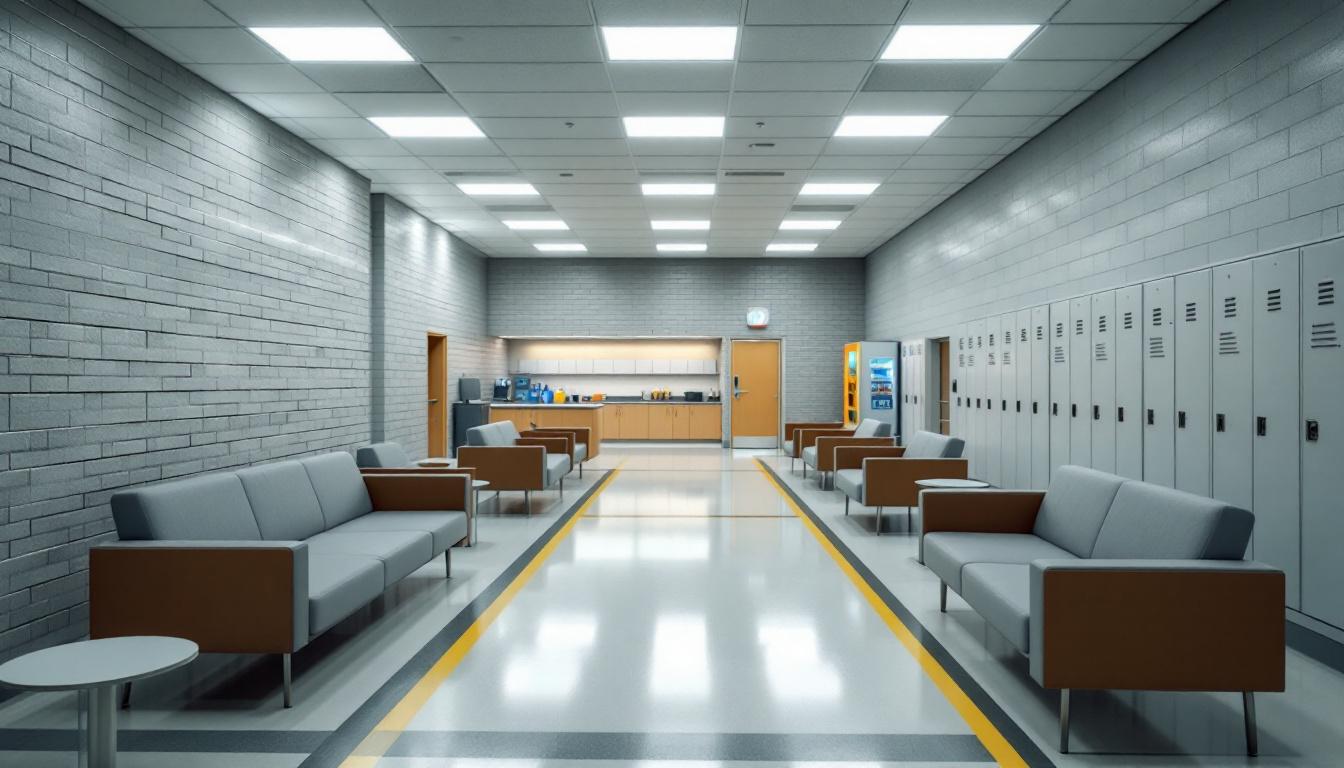
Family connections and social bonds remain central threads in the fabric of life for those incarcerated at the Atlantic County Justice Facility, where structured routines are designed to maintain these vital relationships while providing stability throughout each day. At present, the facility actively organizes daily schedules that typically begin with early morning counts and meal service, followed by work assignments, programming activities, and designated periods for personal correspondence and phone calls. Those incarcerated generally move through their days within a framework that balances security requirements with opportunities for meaningful social interaction, whether through shared meals in common dining areas, participation in group activities, or collaborative work assignments that furnish both structure and the chance to build supportive relationships with fellow residents.
Living accommodations typically consist of dormitory-style housing units or smaller rooms that may house multiple individuals, creating natural opportunities for daily interaction and mutual support among those sharing these spaces. The dining arrangements generally bring residents together for three meals daily in communal areas, where conversations flow and connections deepen over shared experiences and common challenges. Moreover, recreational opportunities often include access to television areas, outdoor recreation yards when weather permits, and various indoor activities that encourage social engagement while providing physical outlets for stress and energy.
Whereas the structured environment maintains necessary security protocols, the facility typically offers multiple avenues for those incarcerated to nurture their connections with family and friends through scheduled visitation periods, telephone access, and mail correspondence. Work assignments within the facility often furnish not dedicated daily purpose but also opportunities to develop job skills while working alongside others in kitchen services, maintenance duties, or facility cleaning operations. Programming schedules may include educational opportunities, counseling sessions, and group meetings that actively support both personal development and community building, helping those incarcerated maintain their sense of identity and connection to the broader community they hope to rejoin.
Ready to Connect?
Start communicating with your loved one today
Search for an Inmate
